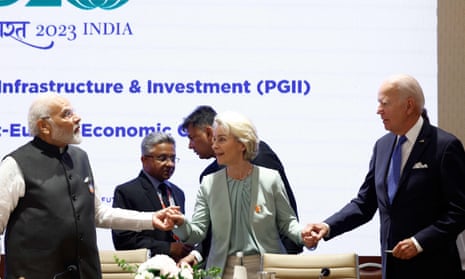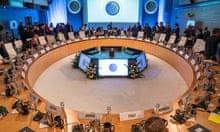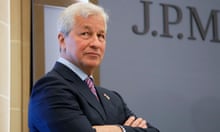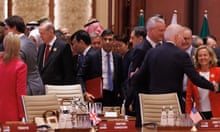The US and the EU have backed an ambitious plan to build an economic corridor linking Europe with the Middle East and India via rail and sea, a project the US president, Joe Biden, described as a “really big deal”.
The Indian prime minister, Narendra Modi, and the European commission president, Ursula von der Leyen, announced the project during a Saturday afternoon session at the G20 leaders’ summit, being held in Delhi this weekend.
Modi said the India-Middle East-Europe economic corridor promised to be “a beacon of cooperation, innovation, and shared progress”. Biden said it was “game-changing investment”.
Von der Leyen described it as “much more than just a railway or a cable”. “It is a green and digital bridge across continents and civilisations,” she said.
The planned corridor would link India, Saudi Arabia, the United Arab Emirates, Jordan, Israel and the EU through shipping ports and rail routes, in an effort to make trade quicker and cheaper and to boost economic cooperation and digital connectivity across the region.
The project, called the Partnership for Global Infrastructure Investment, could speed up trade between India and Europe by 40% and help normalise relations between Israel and the Gulf states, which the Biden administration has been pushing for.
The initiative would also provide a counterbalance to China’s vast infrastructure corridor, the Belt and Road project, which currently stretches across Asia, Africa and Latin America and has given China sizeable influence over countries that have struggling economies.
“We think that the project itself is bold and transformative, but the vision behind the project is equally bold and transformative, and we will see it replicated in other parts of the world as well,” said Jake Sullivan, Biden’s national security adviser.
after newsletter promotion
The leaders did not lay out who would be paying for the project. A working group will lay out fuller plans over the next 60 days, including a timeline for building the infrastructure.
Sullivan said discussions for the project had begun in July last year during Biden’s visit to Saudi Arabia, and that another meeting between Saudi Arabia, the UAE and India had taken place earlier this year to formalise an agreement. Israel, which does not have diplomatic relations with Saudi Arabia, was also brought on to the project along with Jordan.










